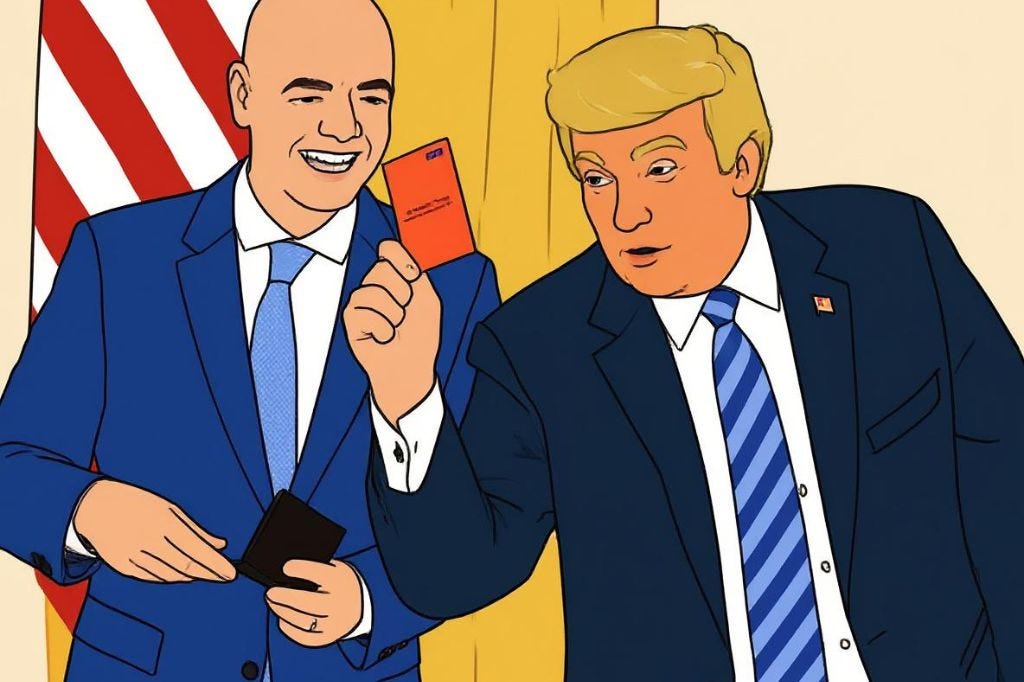FIFA’s New Peace Prize: A Trophy of Hypocrisy and Politics
FIFA’s Peace Prize: Symbol of Global Harmony or Political Opportunism?
FIFA has recently announced the launch of its annual Peace Prize, with US President Donald Trump rumoured to be its first recipient. Touted as a celebration of leadership in fostering global unity through football, this new award quickly reveals deeper contradictions in FIFA’s behaviour and values. More than a genuine effort to promote peace, it appears to be a political stunt designed to boost FIFA’s image alongside that of Donald Trump, while ignoring the pressing human rights crises connected to the sport.
Why is awarding Trump, a figure known for divisive and controversial leadership, a troubling choice? Trump failed to earn the Nobel Peace Prize despite his own and his allies’ lobbying efforts and instead now receives FIFA’s prize - a consolation that lights up questions about FIFA President Gianni Infantino’s motivations and allegiances. Infantino has frequently praised Trump publicly, and the award feels like another chapter in their mutually beneficial relationship rather than a sincere peace endorsement.
But the hypocrisy goes even deeper. FIFA continues to allow Israel to compete in international football even as Israel’s actions in the Palestinian territories have resulted in tens of thousands of civilian deaths in what can only be called a genocide. This stark contradiction undermines FIFA’s proclaimed mission of promoting peace. Palestinian footballers have been murdered and those still alive face severe restrictions, while FIFA’s silence on these abuses speaks volumes about which powers it chooses to protect.
Infantino’s FIFA continues to trade the sport’s integrity and basic human values for political expediency and image management. Despite promises of reform, FIFA remains riddled with corruption and ethical lapses that get overshadowed by superficial gestures like this Peace Prize award. The sport’s global administrators seem willing to turn a blind eye to suffering if it means maintaining profitable relationships with powerful states and controversial figures.
At its core, this prize exemplifies FIFA’s larger crisis - a disconnect between the unifying potential of football and the realpolitik that dominates FIFA’s governance. Until the organisation aligns its actions with the fundamental values of fairness, justice, and human rights, awards like this will only reinforce allegations about FIFA’s true intentions.
Football communities worldwide deserve better than symbolic prizes handed out in the shadows of humanitarian crises. The new FIFA Peace Prize, rather than celebrating peace, exposes the uncomfortable reality: for FIFA, peace is often secondary to power, prestige, and politics.
If FIFA truly wants to be a force for good, it must start by holding itself and influential members accountable, addressing abuses ignored under its watch, and prioritising human dignity over political alliances. Only then can football reclaim its promise as a truly global game that unites rather than divides.
This is not just about a trophy. It’s about the soul of football and the values we want it to represent.




If FIFA had any morals (I know) they should be criticising Trump and his regime rather than promoting it. If he does get it, who's the next recipient? Netanyahu, Orban, Farage?